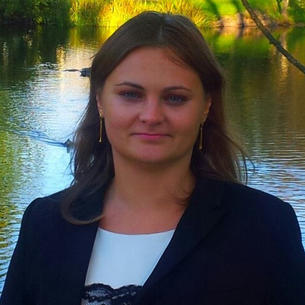Ludmila Vesjolaja, PhD candidate in the PhD programme Process, Energy and Automation Engineering at Faculty of Technology, Natural Sciences and Maritime Sciences (TNM), will be defending her thesis for the degree of philosophiae doctor (PhD).
Title of thesis: «Dynamic and control for efficient fertilizer processes».

Trial lecture topic: «Multiscale modeling and design of granulation processes».
The trial lecture and the defence will be held on October 11 in auditorium A-271 at campus Porsgrunn and on Zoom.
Summery
Operation of fertilizer granulation loops can be improved. A proper process control can enable a cost effective production and deliver consistent product quality for granulated fertilizers. Granulation plants suffer from oscillatory behaviour in the product quality and quantity. Typically, the oscillatory behaviour is observed in continuous granulation loop plants where off-spec particles are recycled back into the granulator.
The observed oscillatory behaviour leads to a reduction in profit, overloading of the process equipment, increased operational risks, and unforeseen plant shut-downs. This thesis investigates how to overcome this problem, i.e., how to suppress and eliminate the oscillatory behavior. In the thesis, some novel stabilizing control strategies using a double-loop control are developed. In addition, an advanced controller, in particular, the model predictive control is applied for stabilizing the oscillatory behavior.
Simulations are performed using the population balance based dynamical model of the granulation process with particle recycle. The results presented in this thesis suggest that a stable and optimal operation of the fertilizer granulation loop processes can be achieved.